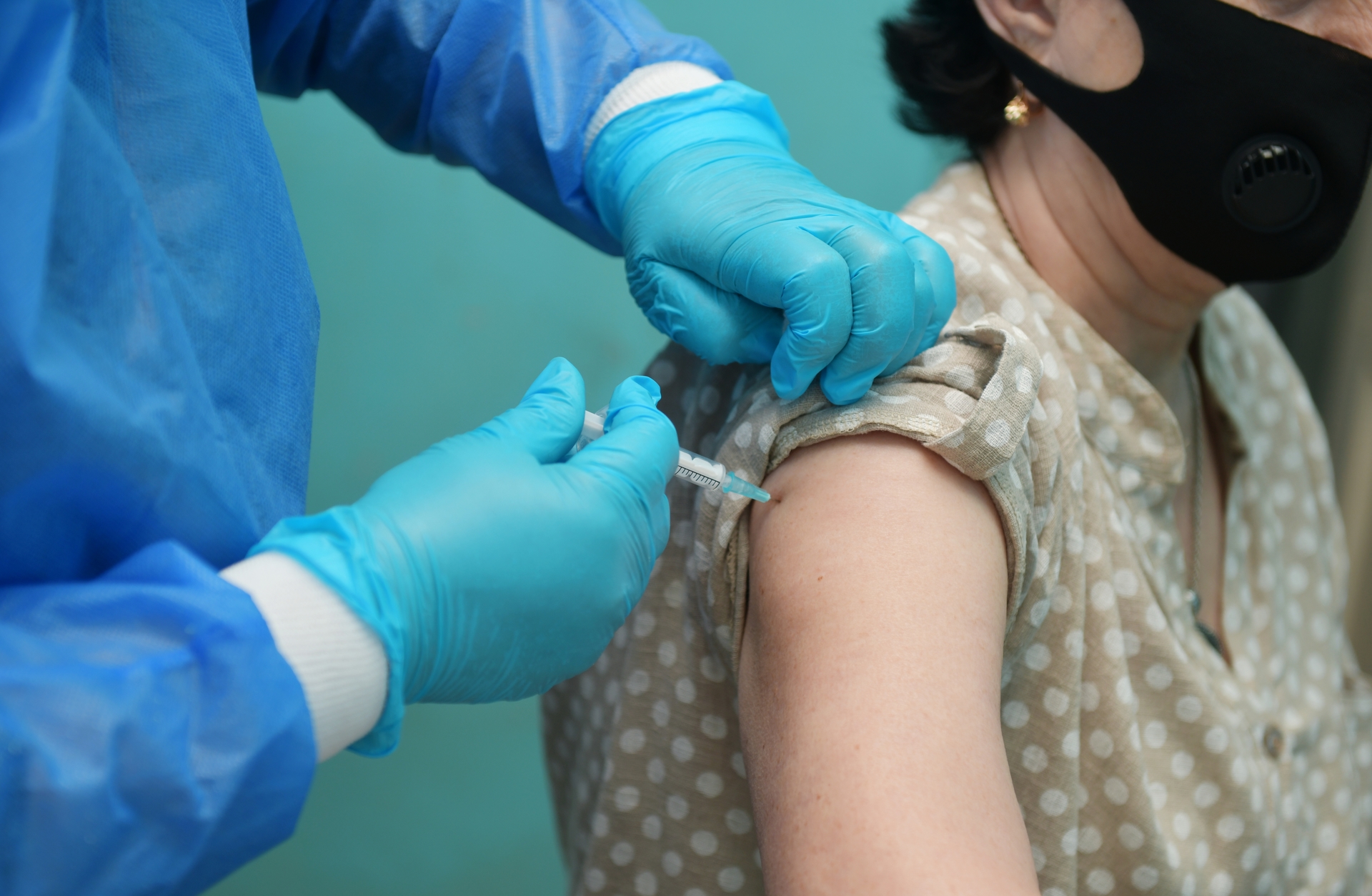Over the past day, 12,505 new cases of coronavirus have been detected in Russia (maximum since February 22), 10,188 people have fully recovered, 396 have died from complications that developed against the background of COVID-19 and concomitant diseases.
Thus, for the 10th day in a row (since June 2), the daily increase in the number of cases has been increasing in the country.
Over the entire period of observations in the Russian Federation, 5,180,454 cases of coronavirus infection were detected.
125 674 deaths were recorded, 4 782 183 people recovered.
272,597 cases remain active.
Most of all new cases of the disease were recorded in Moscow - 5853 (maximum since January 14).
St. Petersburg (863) and the Moscow region (837) are also leaders in this indicator.
From Saturday, June 12, in the Republic of Buryatia, the work of food courts in shopping centers, attractions, cinemas and theaters, as well as full-time reception at the MFC and registry offices, will be suspended, the press service of the regional government said.
The restrictions will be in effect until at least July 1.
“The situation is developing unevenly across the regions.
Those regions where the population observes the rules and goes for vaccinations, the situation is calm there.
Those regions, including those with a high population density, where the population begins to neglect the recommended measures, primarily for the prevention of the disease, where we see that the situation is becoming tense, "said Russian Minister of Health Mikhail Murashko on the air of the Russia 1 TV channel.
He also recommended that Russians get vaccinated against coronavirus a few days before vacation, and not on the day of departure, in order to form an immune response and reduce the risk of infection.
“You will spend your vacation safely and, returning from it refreshed, you will not encounter an illness, and you won’t cross out, don’t let go of everything that your vacation and vacation days have given you,” he said on the Russia 1 TV channel.
The head of the Ministry of Health also advised Russians to take personal protective equipment, antiseptics and drugs that require constant intake for chronic diseases with them on vacation.
According to a VTsIOM poll, 60% of Russians are positive about mass vaccination against coronavirus, while 55% would have been vaccinated with a domestic vaccine.
At the same time, 22% are negative, 15% are indifferent, 3% found it difficult to answer.
According to Rospotrebnadzor, over the entire period of the pandemic, more than 141.9 million laboratory tests for coronavirus were performed, including 400 thousand in the last day.
540 thousand people remain under medical supervision.
RIA News
© Thomas Thaytsuk
As noted by Natalya Pshenichnaya, deputy director for clinical and analytical work of the Central Research Institute of Epidemiology of Rospotrebnadzor, no more than 8% of COVID-19 patients suffer from limb numbness.
In her opinion, such a situation may be associated with a decrease in the nutrition of nerve fibers in the acute period of the disease.
"Less than 8% of patients complain of numbness of the extremities or a decrease in their sensitivity in postcoid syndrome," RIA Novosti quoted her as saying.
The representative of Rospotrebnadzor added that, on average, 18-23% of patients diagnosed with coronavirus are faced with a “nonspecific” symptom - congestion of the ears.
At the same time, only in isolated cases is there an acute sensorineural hearing loss.
“It is assumed that hypoxia of the auditory center in the case of a severe course of the disease, as well as the use of certain medications, may contribute to the development of this condition.
This pathology can be easily missed if the patient is in the intensive care unit for a long time, ”Pshenichnaya explained.
"Indian" strain of coronavirus
The spread of the Indian strain of coronavirus infection is expected in Europe.
This is stated in the statement of the head of the Regional Office for Europe of the World Health Organization Hans Kluge, RIA Novosti reports.
The WHO spokesman stressed that this SARS-CoV-2 mutation is of greatest concern, as it is contagious and even those who are immune can get sick.
In this regard, he recommended that Europeans not neglect precautions, and also expressed the hope that the existing experience in the fight against COVID-19 will help to avoid mistakes made at the beginning of the pandemic.
At the same time, the head of the Russian Ministry of Health, Mikhail Murashko, indicated that at present, the treatment regimens for the disease with the Indian strain of coronavirus do not differ from those used for the usual SARS-CoV-2.
Meanwhile, he believes that in the future, the treatment algorithm may require adjustments.
“Treatment regimens for the Indian strain may need to be adjusted, including due to the higher rate of spread,” he said.

